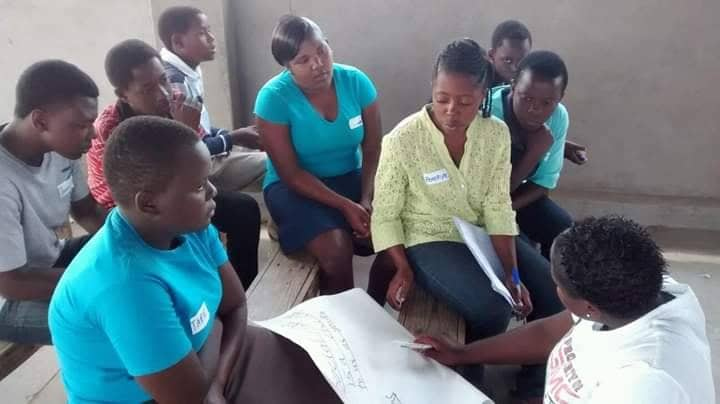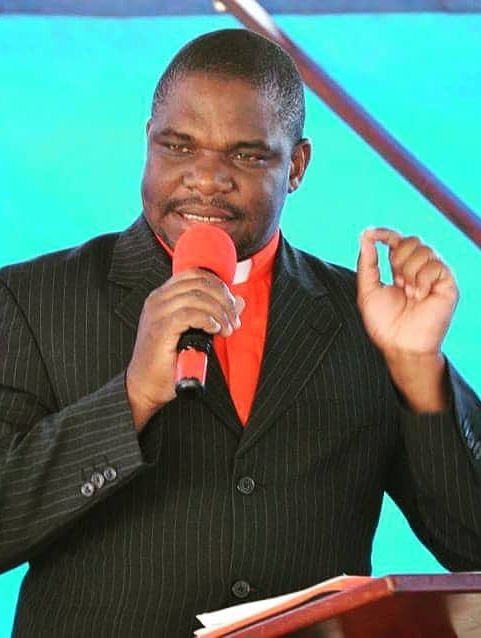Human trafficking — common in Zimbabwe — is a crime affecting every region of the world.
In response, The United Methodist Church has opened its doors by presenting itself as a secure haven for survivors and their families.
“Cognizant of the painful and traumatic phase that those who would have fallen victim … have gone through, the church has taken it upon itself to offer space and provision for counseling, rehabilitation and reunification with one's family,” said the Rev. Duncan Charwadza, Zimbabwe East Conference connectional ministries director.
January is National Slavery and Human Trafficking Prevention Month in the United States, and July 30 is United Nations World Day Against Trafficking in Persons.
According to a United Nations report, human trafficking has become the world’s fastest-growing global crime. Millions of people in the world today are forced to engage non-consensually in activities such as commercial sex, street crime, domestic servitude and even the sale of organs and human sacrifice.

Seventy-nine percent of all detected trafficking victims are women and children, according to the United Nations Office on Drugs and Crime Global Report on Trafficking in Persons 2016.
Accepting survivors requires patience, attentive listening and empathy to their horrific experience, said Charwadza, adding that church personnel are well versed in ways to help.
“The church has a role of being an agent of transformation in this broken and hurting world,” said the Rev. Juliet Chirowa, grassroots organizer for social justice for the conference. The church strives to “influence policy by standing up for justice, including comprehensive care for victims.” This includes workshops to equip church and society leadership and make them more aware of the crisis.
The Rev. John Makaniko, Hatfield United Methodist Church senior pastor, noted that people in rural areas often seek better opportunities in urban areas or out of the country.
Poverty, failure to meet family financial responsibilities, lack of access to education, unemployment and political instability are contributing factors that may influence men, women and children to be in vulnerable positions to be trafficked. Traffickers recruit people through deceit, pressure or fraud by making false promises like the provision of quality education, a stress-free and luxurious life, a new start and numerous future options.
“People tend to take young girls and boys from poor rural families to use them in their urban homes for very little money or no pay,” said Makaniko.
“Human trafficking has devastating effects on the socioeconomic and political sphere,” said conference vice lay leader Justice Hlekani Mwayera. “An ill, people-infested country is characterized by low productivity and associated ills like poverty and increase in crime rate.”
Chirowa encouraged United Methodists to continue including human trafficking and modern slavery issues on their agenda.

“The church’s role,” Makaniko said, “is to educate, advocate, raise awareness, engage communities and law-enforcement agencies and preach and teach about preserving human dignity by condemning human trafficking; provide resource materials on human trafficking alerts; conduct prayer vigils; and offer counseling services to both perpetrators and victims.”
To strengthen the capacity of the church and inspire spiritual and practical action for an effective response, human trafficking was highlighted during this year’s Church and Society Week observed annually in the conference.
Presentations throughout the week explained the extent of human trafficking, challenging the church to watch for possible trafficking in their own communities and to support those who may be vulnerable to exploitation. Teachings drew attention to issues faced by trafficked people and possible action initiatives linked to safeguarding and ensuring justice for everyone.
“Young people must not be desperate, regardless of their situations,” said Fungai Gwiriri, Goromonzi United Methodist Church evangelism chair, “because desperation makes them very vulnerable. They must learn to be patient and trust God for every situation.”
Gwiriri reminded people to consider safety a priority in everything, especially when befriending people on the internet. “Many evil people pretend to be nice on the internet,” he said. “Yet, they will be looking for young people to lure.”
“The victims of human trafficking are subjected to all forms of abuse — physical, sexual, verbal, emotional, psychological and economic — as they are left with no maintenance or provision for their upkeep,” said Mwayera.
He said the church, like government, should educate youth and all people about social ills and warn them “not to succumb to unverified promises of employment.”
Encouraging congregations to be houses of healing and peace, where no one fears judgement and discrimination, Gwiriri urged the church to be the voice of the voiceless.
Muzerengwa is a communicator for the Zimbabwe East Conference.
News media contact: Vicki Brown, news editor, newsdesk@umcom.org or 615-742-5469. To read more United Methodist news, subscribe to the free Daily or Weekly Digests.
Like what you're reading? Support the ministry of UM News! Your support ensures the latest denominational news, dynamic stories and informative articles will continue to connect our global community. Make a tax-deductible donation at ResourceUMC.org/GiveUMCom.




